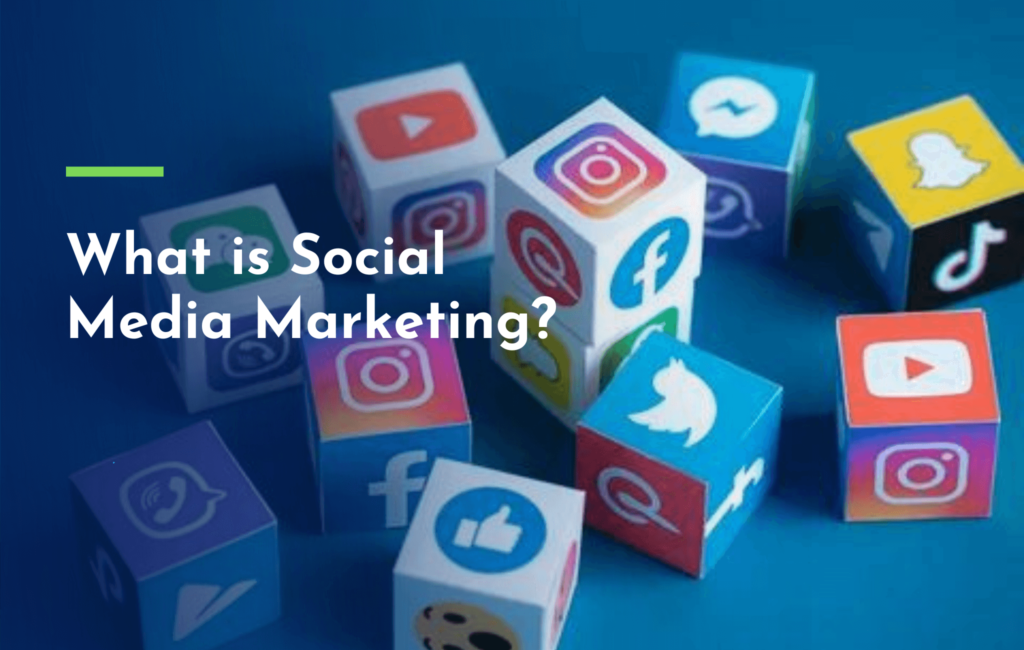
Social media marketing (SMM) is a form of digital marketing that involves creating and sharing content on social media platforms to achieve marketing and branding goals. This type of marketing includes activities like posting text and image updates, videos, and other content that drives audience engagement, as well as paid social media advertising. Understanding what is social media marketing is crucial for businesses looking to effectively reach and engage their target audience online.
The Importance of Social Media Marketing
Social media marketing is vital for businesses of all sizes. It provides a way to reach a large audience with relatively low costs compared to traditional marketing methods. The platforms offer advanced targeting options, making it possible to reach specific demographics with tailored messages.
How Social Media Marketing Works
Social media marketing involves using social media platforms to connect with your audience, build your brand, increase sales, and drive website traffic. This is done by publishing great content on your social media profiles, listening to and engaging with your followers, analyzing your results, and running social media advertisements.
Major Social Media Platforms
1. Facebook
Facebook is one of the most popular social media platforms, offering tools for businesses to create pages, run ads, and engage with customers.
2. Instagram
Instagram is highly visual, making it ideal for businesses in industries like fashion, food, and entertainment. It supports both organic posts and paid advertisements.
3. Twitter
Twitter is known for its real-time updates and is ideal for businesses looking to engage with customers on trending topics or provide customer service.
4. LinkedIn
LinkedIn is the go-to platform for B2B marketing. It allows businesses to target professionals based on industry, job title, and more.
5. Pinterest
Pinterest is a visual platform that works well for businesses in the lifestyle, home decor, and DIY niches. It drives significant traffic through pinned images that link back to websites.
The Role of Content in Social Media Marketing
Content is at the heart of social media marketing. Whether it’s a blog post, video, infographic, or simple image, the content you share on your social channels is what will attract, engage, and retain your audience.
Types of Content in Social Media Marketing
1. Written Content
Blogs, articles, and posts are the most common types of written content shared on social media. This content should be informative, engaging, and relevant to your audience.
2. Visual Content
Visuals like images, infographics, and videos tend to perform better on social media as they are more engaging. This content should be high-quality and align with your brand’s message.
3. User-Generated Content
Encouraging your audience to create and share content about your brand is an effective strategy. User-generated content builds trust and authenticity.
4. Live Streaming
Live streaming on platforms like Facebook Live, Instagram Live, and YouTube allows businesses to connect with their audience in real-time.
Developing a Social Media Marketing Strategy
A successful social media marketing strategy involves several key steps:
1. Define Your Goals
Identify what you want to achieve with your social media marketing, whether it’s brand awareness, lead generation, or increased sales.
2. Know Your Audience
Understand who your audience is, where they spend their time online, and what type of content they engage with.
3. Choose the Right Platforms
Not all social media platforms are suitable for every business. Choose the ones that align with your goals and audience.
4. Create Engaging Content
Content is king in social media marketing. Create a content calendar to ensure regular posting and engagement with your audience.
5. Engage with Your Audience
Respond to comments, answer questions, and engage with your audience to build a loyal community.
6. Analyze and Adjust
Use analytics tools to measure the performance of your social media efforts and adjust your strategy accordingly.
The Benefits of Social Media Marketing
1. Increased Brand Awareness
Social media platforms allow you to reach a larger audience and increase your brand’s visibility.
2. Improved Customer Loyalty
Engaging with customers on social media can help build stronger relationships and increase customer loyalty.
3. Higher Conversion Rates
With targeted advertising and personalized content, social media can lead to higher conversion rates.
4. Cost-Effective Marketing
Social media marketing is often more affordable than traditional marketing methods, making it ideal for businesses with limited budgets.
Challenges of Social Media Marketing
1. Time-Consuming
Managing multiple social media accounts and creating content can be time-consuming.
2. Constantly Changing Algorithms
Social media platforms frequently update their algorithms, which can affect the visibility of your content.
3. Negative Feedback
Social media is a public space, and negative comments can harm your brand’s reputation if not handled properly.
Measuring Success in Social Media Marketing
To gauge the success of your social media marketing efforts, you need to track key metrics:
1. Engagement Rate
This measures how much your audience interacts with your content through likes, shares, comments, and clicks.
2. Reach and Impressions
Reach is the number of unique users who see your content, while impressions are the total number of times your content is displayed.
3. Conversion Rate
This metric shows how many people took the desired action, such as signing up for a newsletter or making a purchase, after interacting with your social media content.
4. Return on Investment (ROI)
Calculate your ROI by comparing the money spent on social media marketing to the revenue generated from those efforts.
Future Trends in Social Media Marketing
1. Rise of Short-Form Video Content
Short-form videos on platforms like TikTok and Instagram Reels are becoming increasingly popular and are expected to continue dominating social media.
2. Increased Use of Augmented Reality (AR)
AR is being used more frequently in social media marketing, particularly in try-before-you-buy features for products like makeup and furniture.
3. Growth of Social Commerce
Social media platforms are integrating shopping features, allowing users to make purchases directly within the app.
